Prepaid payment instruments (PPI) are quite in demand! And after the new rule by NPCI of imposing up to 1.1% of interchange fee upon the prepaid payment instruments UPI transactions, more businesses are keen on learning about it.
PPIs, when used in the form of multicurrency, mobile wallets, or smart cards, help accelerate the sales and profitability of businesses. You will be earning revenue for every transaction made over the prepaid cards that you issue. Moreover, it also helps you attain customer loyalty.
Do you want to know how?
Let’s dive into the facts and characteristics of prepaid payment instruments to ensure you get an understanding of how it helps your business.
A Versatile Cashless Payment Remedy!
PPIs are quite versatile in nature, as they are available in three different types. Depending on what suits the best for your business, be an issuer of the same. The three types of PPIs are as follows:
1. Closed-System
These PPIs are issued by specific entities who want users to avail services or goods, specifically from that entity only. These instruments do not have withdrawal options and cannot be used for settlement or payment of other services. There is no need for approval from RBI for entities to issue such PPIs. Some of the common examples of closed-system PPIs include gift vouchers, paper vouchers or gift coupons.
2. Semi-Closed
Banks and non-bank entities (NBE) issue the semi-closed PPIs, upon RBI approval, for remittance benefits or financial services. These PPIs can be used only across specific merchant establishments and locations upon a contract with issuers.
The contract specifies that the entitled merchants will be accepting these PPIs as payment in exchange for their goods or services. As a bank or NBE, you cannot enable the users to withdraw cash on your issued PPIs. Some of the common examples are Mobikwik, Sodexo, and Oxigen.
3. Open System
Open system PPIs are issued only by the banks, upon RBI approval, for being used at any merchant or established store for the purchase of goods & services. With such PPIs, users can be enabled with cash withdrawals or usage with PoS machines. Travel cards are one of the common examples of open-system PPIs, which can be used for all types of cash withdrawals and spending.
A Plethora of Features!
To start with, you must know PPI enables you to attain a plethora of practical features that will help escalate your business operations. Some of them are as follows:
1. Diversity of Options
PPIs are available in various forms for the end-users. You can be issuing a smart card, digital wallet, virtual card or others, depending on your preferences and feasibility. As you will be the PPI issuer, it is upon you to decide what would seem best for your customers to make them go cash-free.
2. Loading Money at Ease
With the availability of prepaid payment instruments UPI, loading money onto these instruments is hassle-free. But, apart from that, one can also flexibly use NEFT, IMPS or RTGS for topping up the instruments. As an issuer, you will have the flexibility to load the PPIs or allow the users to do it from their end.
3. Ease of Online or Offline Purchases
PPI is ideally used for both online as well as offline purchases. Hence, you can be sure of the fact that the cards or wallets you issue will be used with high frequency. PPIs, such as digital wallets, can be loaded with funds to be used for payments at brick-and-mortar shops. But at the same time, a virtual card linked to some waller or UPI ID will seamlessly allow you to make online purchases.
4. Scope of Enabling Customisation/Limitation to PPIs
Suppose you are issuing smart card PPIs to your employees as food and grocery allowance every month. You top up their cards with a specific amount for them to spend only on a select category of products or stores. You have the liberty to restrict the card to be used only over supermarkets, restaurants, online food delivery apps, grocery marts, and others. One such great example is Sodexo!
In this way, you will have control over the PPIs that you issue to the users. If they try to use the card anywhere apart from the accepted stores or enabled POS machines, the instrument will be considered invalid for the purchases.
Flexibility upon Signing Up as PPI Issuer!
If you meet specific criteria, fall under a specific category of entities and have got the approval or authorisation of RBI, you can be the PPI issuer and generate revenue for yourself. For you to determine if you can be a PPI issuer or not, here are the eligible entities listed below:
1. NBE (Non-Banking Entities)
The NBEs or businesses must be incorporated within India. Moreover, they should have minimum paid-up capital of Rs. 5 crores and a minimum positive net worth of Rs. 1 crore.
2. Banks
The banks attain compliance with PPI eligibility criteria, as per RBI. Hence, all banks can be PPI issuers. Remember, only the banks that have the approval of RBI upon facilitating mobile banking transactions can become PPI issuers.
3. NBFCs (Non-Banking Financial Companies)
The NBFCs should have a dedicated escrow account with any one of the scheduled Indian commercial banks. NBFCs can issue the PPIs only as a closed or semi-closed system.
4. Mobile Service Providers
Mobile service providers have the flexibility of issuing prepaid cellular values such as talk time. This prepaid value as an instrument is limited to buying just the value-added services or digital content offered by the providers on smartphones. Prepaid cell phone PPI balance cannot be used to buy other services or goods.
Core Advantages of Being a PPI Issuer
RBI sees the initiative as a pivot for promoting India to be digital and cashless. The use of PPI facilitates the purchase of goods or services alongside financial services. Moreover, businesses also use it for smooth remittances and fund transfers.
Being a PPI issuer has its benefits! Apart from the functionality advantages, the PPIs can be helpful in terms of the following:
1. Simplifying the operations
2. Elevating the experience of customers and employees
3. Introduce additional sources of revenue
4. Helping with business scaling and growth
With the PPIs, your business can enable domestic and cross-border payments, just like banks, but with added security, efficiency, and flexibility. PPIs are backed by critical reforms by the RBI. Hence, it is a secure digital payment alternative for people. Thus, RBI also encourages all Indian businesses to implement PPIs to boost the cashless payment culture in the country.
Conclusion
The total volume of PPI transactions in India, as of 2022, is recorded as 6.58 billion. The jump is quite huge, as 2021 recorded the transaction count as 4.93 billion. Hence, this explains the rising demand for PPI usage and the increase in the count of PPI issuers.
So, if you own a business in India and meet the NBE criteria, you can issue PPIs to your employees as remittances or financial services. The recent proposal by NPCI upon charging an interchange fee for prepaid payment instruments UPI loadings and transactions favours the payment service provider or receiver’s bank. They will have the potential to earn added revenue!

